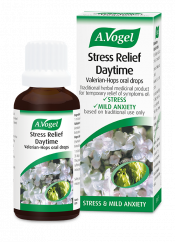How do you spend your 24 hours each day?
In the last blog we talked about Time Charts as a useful tool to log how we spend our time. Once we are clearer about how our time is being used we can make more informed choices as to what we might want to do about it.
For example, I have a client who is very devoted to her family and wants to be there for them and with them as much as possible.
However, when she completed her time chart she realised that she spent so much time doing things for them that she felt depleted and empty for not allowing herself any quiet recovery time.
By choosing to shut off for a certain number of hours a week and giving herself quality time alone, doing things she loved, she suddenly found she had more energy for her family too.
If you were to list which activities take most time in order of the number of hours spent on each, how would it compare against what you consider important in life?
You may know that you love going for walks in nature or spending time in the garden and yet you are giving more importance to getting the housework done. Consider these questions as you review your chart.
- How balanced does my life feel right now?
- What is missing from my list?
- How far do my priorities reflect what is truly important to me?
Now that you’ve reviewed what is getting most of your day to day attention, you have an opportunity to consider what you might like to change so that your priorities reflect what is truly important in your life.
- What needs less attention? More attention?
- Which areas of life need to be a priority at the moment?
- How would you love to spend more of your time?
- What do I need to do less of/more of to improve my well-being?
When my friend with the elderly parents looked at her Time Chart she realised she really desperately needed some time for rest, relaxation and fun if she was going to be able to meet the demands placed on her. Here are the actions she took:
- She booked off one day a week from work through the Summer (rather than a long break) to take mini day trips to the sea (her favourite place to recover) as well as catch up with friends.
- She arranged for carers to visit her parents daily so that she could go in only a few days a week.
- She took time to think about what would nourish her through this challenging time and could be fitted into small time slots (a 20 minute walk in nature behind her house, a daily green juice on waking, 15 minutes meditation in the morning or evening, writing in her journal, breakfast with a friend etc).
- She asked for help from friends and family and had to set boundaries about what she could and could not feasibly do.
It took time and effort to put these new plans into place but it has given her well needed recovery time whilst having to deal with an ongoing and challenging situation..
It is so important to remember that we can make choices in favour of maintaining our sanity. Sometimes we need to make big changes in order to achieve this and sometimes smaller adjustments is all it takes. Be patient with yourself, trust your gut feelings and inner wisdom to to know what you need.
If time is constantly getting the better of you and you don’t know when to stop, the following guidelines may be helpful:
- Take quiet time out to listen to your inner wisdom about what you need
- Prioritise daily, remembering that priorities change and sometimes rest is the most important
- Allow more time than you think you need for an activity or journey.
- Don’t forget to play and have fun.
- Focus on and complete one task at a time before commencing another.
- Rest before you get tired – work with your energy levels not against them.
- Pay attention to what/who creates a sense of pressure within you.
- Ask for help and delegate where needed.
- Strive for balance between work and play.
- Keep a ‘not to do’ list.
- Be available for yourself if you want to be available for others.
- Remember if you take time to review, you make time for you.








